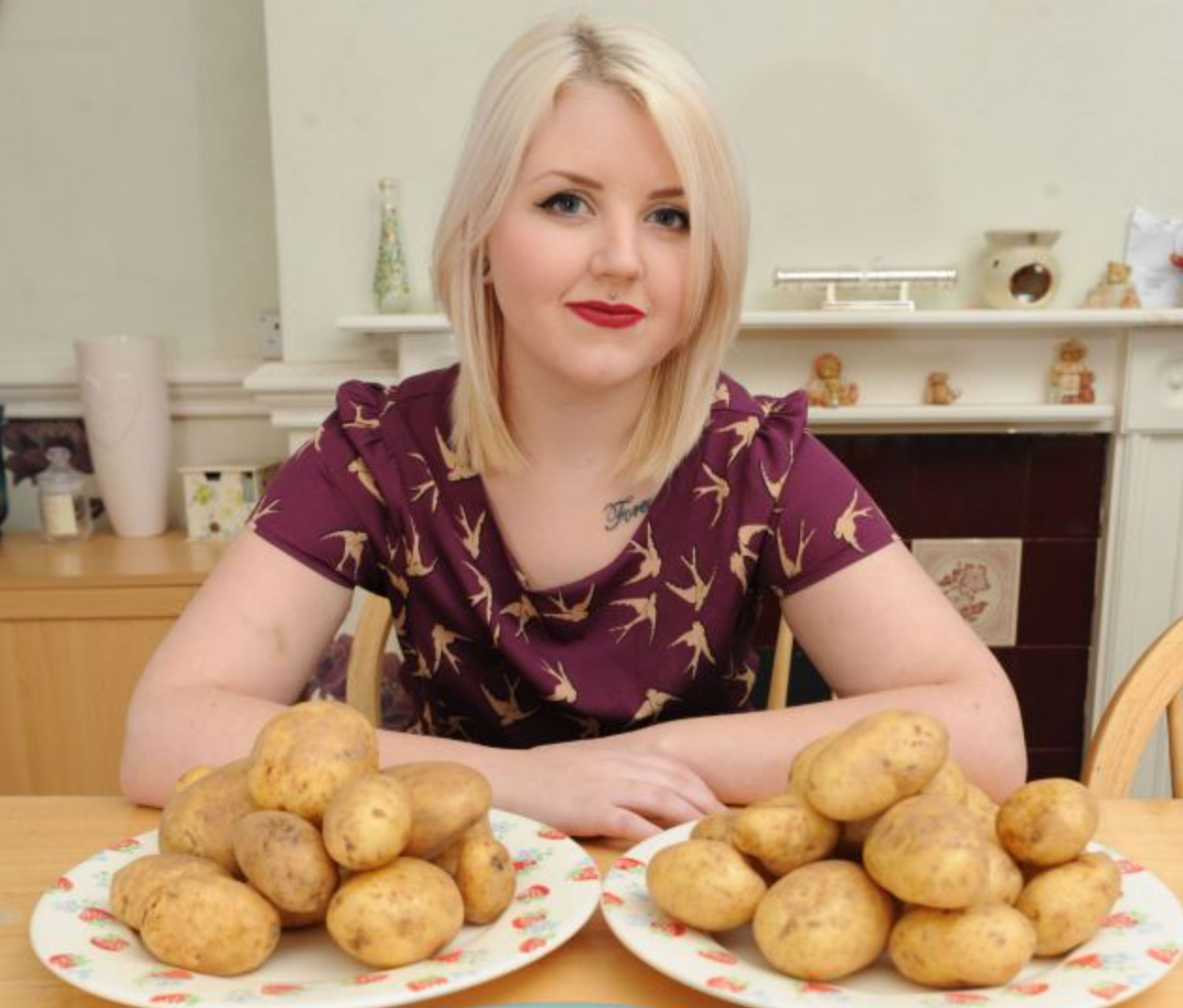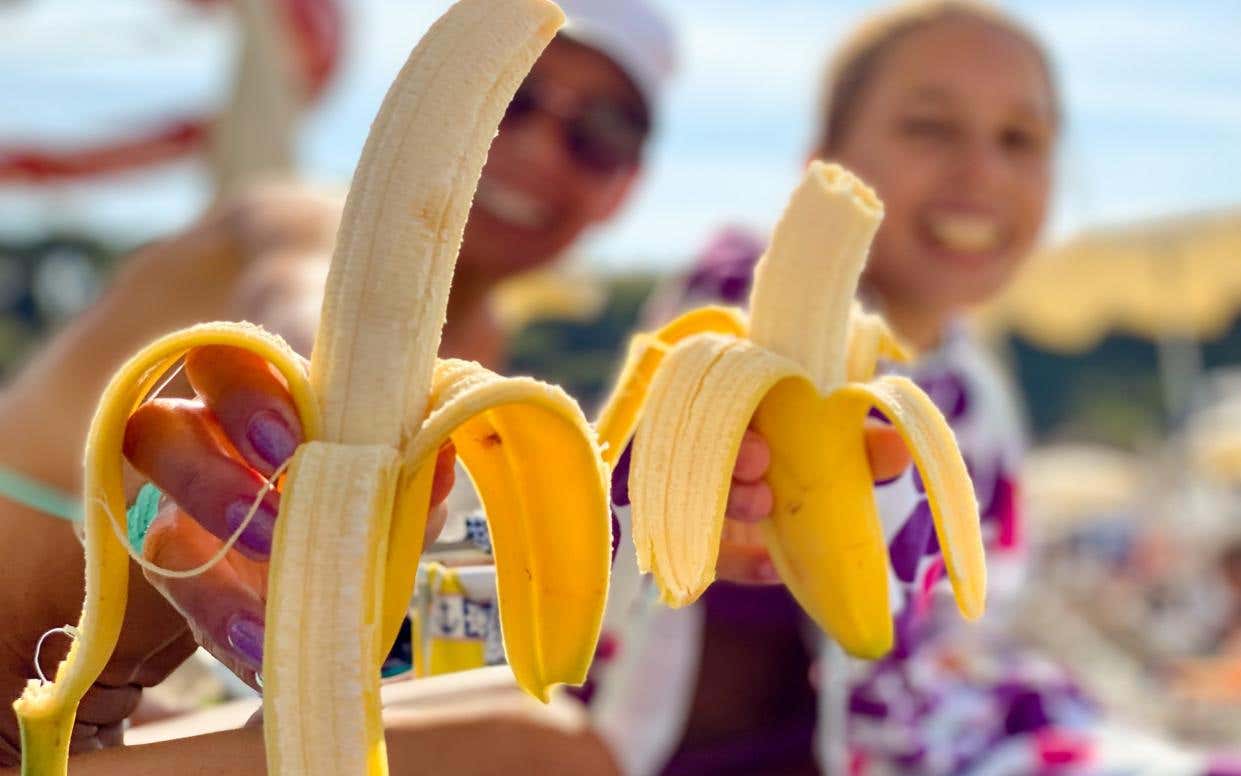Baked potatoes can boost your heart health, study finds
Nutrition sciences professor Neda Akhavan’s recent study suggests spuds as a potential superfood for those with Type 2 diabetes

Potatoes, often dismissed by dieters, might just be the key to improving health outcomes, particularly for adults managing Type 2 diabetes. (CREDIT: Caters News Agency)
Potatoes, often dismissed by dieters, might just be the key to improving health outcomes, particularly for adults managing Type 2 diabetes. Despite their reputation as unhealthy, particularly when fried, potatoes, especially with their skins, are packed with nutrients that can contribute to a healthier lifestyle.
New research spearheaded by Neda Akhavan, an assistant professor in the Department of Kinesiology and Nutrition Sciences at UNLV, is challenging this stigma and shedding light on the positive health effects of potatoes.
Akhavan's research, recently presented to the Alliance for Potato Research and Education, focused on the cardiovascular benefits of potatoes for individuals living with Type 2 diabetes. “I like doing research on food items that are highly stigmatized in the nutrition world,” Akhavan shared. Her goal is to demonstrate that when prepared properly, potatoes can be both functional and healthy, contrary to popular belief.
To explore this, Akhavan conducted a study involving 24 participants with well-controlled Type 2 diabetes. The study, funded by the Alliance for Potato Research and Education, is believed to be the first to scientifically measure the cardiovascular benefits of potatoes in this population.
Over a 12-week period, participants were given a pre-prepared baked potato with the skin, measured to 100 grams and containing only 20 grams of carbohydrates. The control group received a similar portion of white rice, matching the potato in calories and carbohydrates.
The study was designed to determine if substituting a common high-glycemic food like white rice with potatoes could have beneficial effects on health. Participants were allowed to season their potatoes with herbs or spices and use up to half a tablespoon of butter but were advised against frying them.
The results were promising. Participants who included potatoes in their diets experienced modest decreases in fasting blood glucose levels, improvements in body composition, reduced waist circumference, and a lower resting heart rate. Akhavan emphasized that these findings suggest potatoes can be a healthy part of a diet for individuals with Type 2 diabetes, especially when substituted for high-glycemic foods like long-grain white rice.
Related Stories
"The results from our study provide evidence that white potatoes can be healthfully incorporated in the diet of individuals with Type 2 diabetes when substituted for other foods with a high glycemic load," she noted. Importantly, the study showed no harmful effects on health outcomes, with some cardiometabolic benefits aligning with expectations.
Moderation and preparation methods, Akhavan pointed out, are crucial when incorporating potatoes into a diet. "Potatoes are a very versatile food and can be eaten with most types of cuisines," she said. For those short on time, she suggests meal prepping by making a large batch of baked or roasted potatoes. She cautions against boiling, as it can cause a loss of potassium from the skin, one of the potato’s most valuable nutrients.
Potatoes are indeed a powerhouse of nutrients, being the richest source of dietary potassium in Western diets. High-potassium diets are associated with lower blood pressure and reduced risk of developing Type 2 diabetes.
Additionally, potato skins contain resistant starch, a type of fiber that improves glucose control, lipid profiles, and satiety. Akhavan advocates for eating potatoes with the skin to maximize these health benefits.
Surprisingly, potatoes offer more potassium than bananas, a fact that often astonishes people. Akhavan highlighted this by suggesting that the next time you consider reaching for a banana, you might want to opt for a potato instead. "A lot of people are shocked to learn that a potato has a higher level of potassium than a banana," she remarked. Not only do baked potatoes help you feel fuller for longer, but they are also one of the most satiating foods in the Western diet.
Looking ahead, Akhavan plans to expand her study to include a larger and more diverse group of participants. She also intends to explore how incorporating potatoes into a Mediterranean diet could enhance health benefits further. Her ongoing research aims to deepen our understanding of how potatoes can play a role in healthier dietary patterns.
This study is a significant step toward changing the perception of potatoes and recognizing their potential health benefits. By challenging the stigma surrounding this humble vegetable, Akhavan’s research offers new insights into how you can incorporate potatoes into a balanced, health-conscious diet.
Note: Materials provided above by The Brighter Side of News. Content may be edited for style and length.
Like these kind of feel good stories? Get The Brighter Side of News' newsletter.
Joshua Shavit
Science & Technology Writer | AI and Robotics Reporter
Joshua Shavit is a Los Angeles-based science and technology writer with a passion for exploring the breakthroughs shaping the future. As a contributor to The Brighter Side of News, he focuses on positive and transformative advancements in AI, technology, physics, engineering, robotics and space science. Joshua is currently working towards a Bachelor of Science in Business Administration at the University of California, Berkeley. He combines his academic background with a talent for storytelling, making complex scientific discoveries engaging and accessible. His work highlights the innovators behind the ideas, bringing readers closer to the people driving progress.



